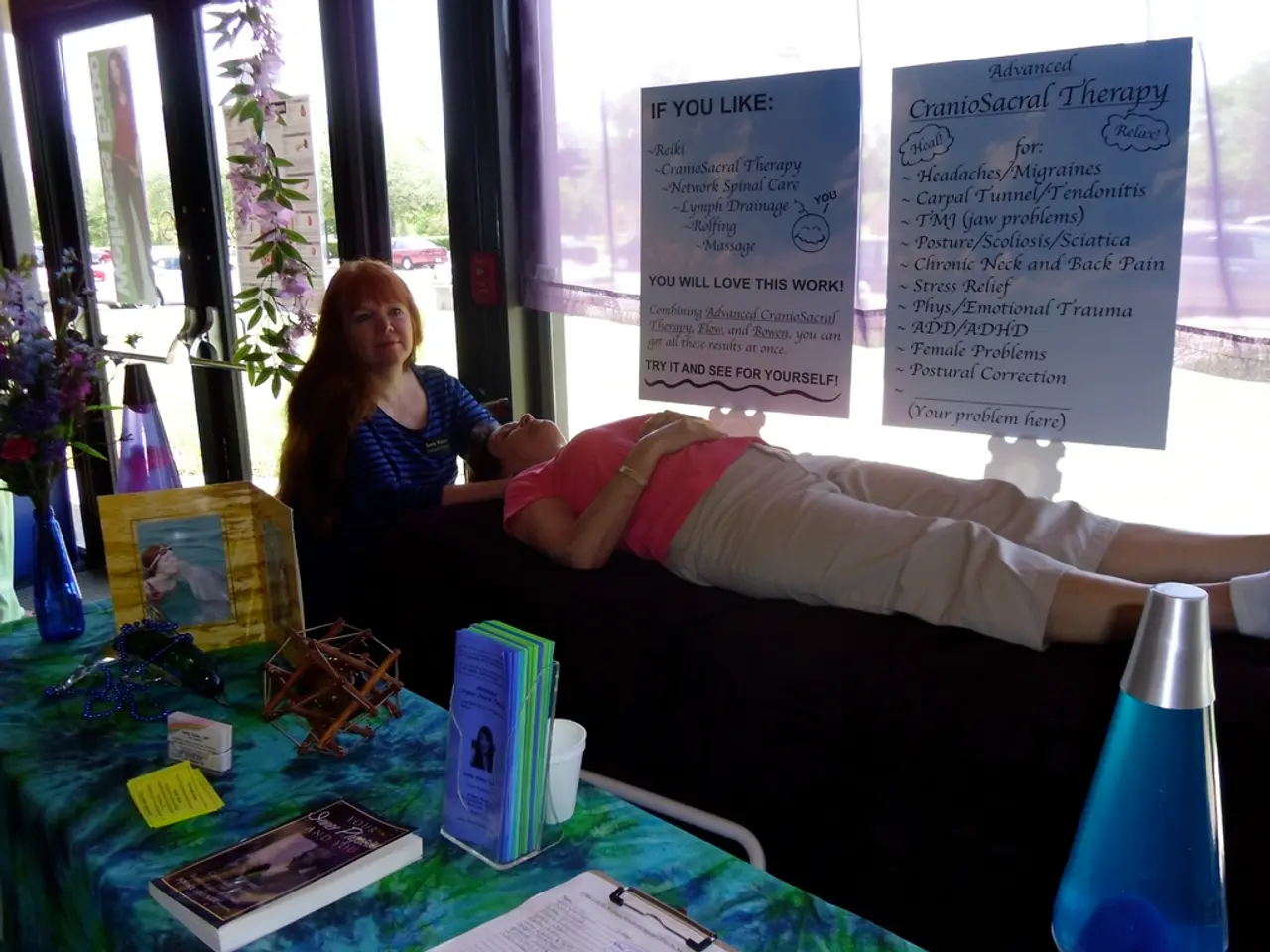MRSA spread: Understanding transmission, preventive measures, and additional aspects
Carrying MRSA: More Than Just a Passive Ride
MRSA colonization refers to the presence of Methicillin-resistant Staphylococcus aureus (MRSA) bacteria on or in your body, causing no symptoms. It's like being a hidden carrier, unaffected yet potentially spreading the bacteria to others – especially in healthcare settings.
MRSA can hide out in your nose, throat, groin, armpits, skin folds, perineal area, and other moist areas. Carrying MRSA doesn't bring about symptoms, but it can be a significant worry for healthcare professionals. This is because carriers can unwittingly spread this harmful bacteria to others, causing infections.
MRSA is a troublemaker because it's resistant to many common antibiotics, mainly methicillin, penicillin, amoxicillin, and oxacillin. This resistance makes it harder to treat and potentially more dangerous, especially for vulnerable individuals.
MRSA can spread through close contact, sharing unsanitized equipment or supplies, environmental contamination, and even crowding in living spaces. If your immune system is weakened or you have wounds, the risk of a MRSA infection is high. To combat this, it's crucial to follow hygiene practices:
- Regular handwashing and showers using antiseptic soap
- Keeping wounds clean and covered
- Avoiding towel, razor, clothing, bedding sharing
- Washing clothes, sheets, and towels in hot water and drying on high heat
- Disinfecting surfaces regularly
In medical settings, healthcare professionals may screen individuals for MRSA bacteria, especially before surgeries. If they detect MRSA colonization, they may prescribe nasal creams, body wash, shampoo to reduce the bacteria. These remedies could be used for approximately 5 to 10 days.
You should keep an eye out for signs of skin infections, especially at sites with cuts or abrasions. Symptoms of an MRSA infection include pain, redness, pus, swelling, and warmth when you touch the area.
By following hygiene guidelines at home and in medical settings, you can help lower the chances of MRSA colonization and subsequent infections.
Did You Know?
- MRSA colonization is a risk factor for developing MRSA infections like surgical site or bloodstream infections.
- The likelihood of developing an infection depends on factors like the bacterial load, number of colonized sites, host immunity, presence of wounds or breaks in the skin, prior MRSA history, and environmental factors.
Frequently Asked Questions:
- Does MRSA go away on its own? - Some people may naturally clear MRSA without treatment, but it's uncertain how common this is.
- Does chlorine kill MRSA? - Chlorine is not very effective against MRSA in high-touch areas, but it can help control the spread in pools, hot tubs, or water-related surfaces.
- Will I always carry MRSA bacteria? - If you’ve had a previous MRSA infection or colonization, the chance of recurrence is higher. However, with good hygiene practices, the risk can be minimized.
- MRSA, a bacteria resistant to many common antibiotics, can hide in various moist areas of the body, making it significant for healthcare professionals because carriers can unknowingly spread it to others, causing infections.
- To combat MRSA, it's crucial to follow hygiene practices such as regular handwashing, keeping wounds clean, and disinfecting surfaces, especially in medical settings where screenings for the bacteria might occur, and nasal creams, body wash, and shampoo may be prescribed for reduction.
- Signs of an MRSA infection include pain, redness, pus, swelling, and warmth at sites with cuts or abrasions, and it's advisable to keep an eye out for these symptoms.
- By adhering to hygiene guidelines at home and in medical settings, the chances of MRSA colonization and subsequent infections can be lowered.
- MRSA colonization can be a risk factor for developing MRSA infections like surgical site or bloodstream infections, and the likelihood of developing an infection depends on factors like bacterial load, host immunity, presence of wounds or breaks in the skin, prior MRSA history, and environmental factors.
- For those seeking health-and-wellness solutions, CBD products have been studied for their potential benefits in various medical-conditions, chronic-diseases, mental-health, skin-care, and fitness-and-exercise, offering a holistic approach to wellness alongside traditional therapies-and-treatments and nutrition.








